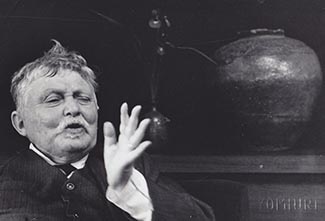 CHALLENGE
CHALLENGEMarcel Studies
About Marcel

Gabriel Marcel
French philosopher Gabriel Marcel (1883–1973) is one of the most influential thinkers of the twentieth century. The themes of Marcel's philosophy, which are developed with a blend of insight, concreteness, and common sense, continue to be relevant for the plight of humanity in the twenty-first century. Marcel's thought continues to be attractive because he emphasizes a number of significant ideas that have been influential in twentieth century philosophical and theological thought: the attempt to preserve the dignity and integrity of the human person by emphasizing the inadequacy of the materialistic life and the unavoidable human need for transcendence; the inability of philosophy to capture the profundity and depth of key human experiences, and so the need to find a deeper kind of reflection; the emphasis on the human experience of intersubjectivity, which Marcel believes is at the root of human fulfillment; and a seeking after the transcendent dimension of human experience, a dimension that cannot be denied without loss, and that often gives meaning to many of our most profound experiences. Marcel also manages to do justice to the subjectivity and individuality of the human person, while at the same time avoiding the relativism and skepticism that has tended to plague contemporary philosophy after Heidegger. He is also important because he presents an inspired alternative vision to challenge the moral relativism and spiritual nihilism of his French rival, Jean-Paul Sartre, and other representative existentialist philosophers.
Marcel’s major works are: (in two volumes) Le Mystére de L'etre (1951) (The Mystery of Being); Homo Viator (1952); Creative Fidelity (1962); The Existential Background of Human Dignity (1963); Man Against Mass Society (1952); Being and Having (1951); Metaphysical Journal (1952); The Philosophy of Existentialism(1970); and many dramatic works.






